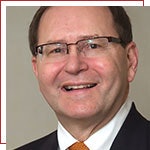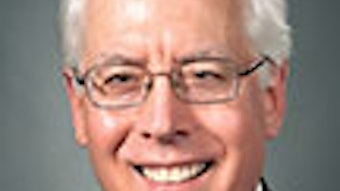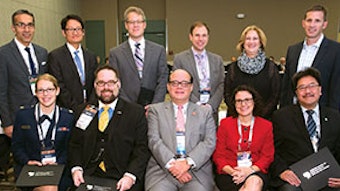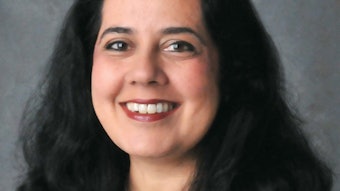Knowns, unknowns of 2016
As a very tumultuous 2015 comes to a close for otolaryngology and medicine in general, we are all asking, “What will 2016 bring?” There are a lot of unknowns across the spectrum of physician activities including quality measurement, reimbursement, continuing education and certification, and the overall configuration of the healthcare delivery system. As you can note in our Annual Report contained in this Bulletin, the Academy has been very proactive in trying to respond to these potential changes and provide our Members the means to offer the best patient care in the future.

While it is impossible to accurately predict what 2016 will bring, certain trends will likely continue. We will be watching closely as the rules of engagement are announced and opportunities are created both in the private and public sectors. Let’s look at things we know, as well as areas that are not as clear.
What we know
The MACRA (Medicare Access and CHIP Reauthorization Act) legislation that replaced the SGR formula will greatly accelerate quality measurement and patient outcomes reporting, and in turn, payment reform. This act has codified the role of qualified clinical data registries (QCDRs) and clearly directed payment reform toward Alternative Payment Models (APMs), targeting a 50 percent participation rate in APMs by 2018 and 75 percent by 2022. An alternative track involves the Merit-based Incentive Payment System (MIPS), which will require reporting on quality measures, resource usage, meaningful use, and performance improvement. CMS is targeting ultimately 75 percent of payments to flow through the APMs and a residual 25 percent of payments on a fee-for-service basis. There is a clear advantage to be able to participate in an APM.
What we don’t know
CMS has recently received comments relating to APMs and MIPS and will use these to help formulate the operational parameters for these programs. In the meantime, it is not clear how specialists such as otolaryngologists can participate broadly in an APM outside of an accountable care organization (ACO). The Academy, along with other specialties, continues to aggressively pursue opportunities for our Members to participate in APM methodology. We are committed to preserving the opportunity to practice successfully without being institutional employees and will carry on exploration into organizational structures, such as specialty-wide associations, that can leverage our clinical acumen.
What we know
Quality will be integral to the practice of medicine on an accelerating basis. Both payment and participation will be dependent on the ability to demonstrate and improve the quality of patient care. This will spill over into Maintenance of Licensure (MOL) and into the evolution of Maintenance of Certification (MOC). Our Members will need to identify and exhibit these metrics across the breadth of the specialty to participate in all of these activities. The American Board of Medical Specialties (ABMS) is encouraging collaboration between specialty boards and associations, and the Academy has had multiple productive discussions with the American Board of Otolaryngology (ABOto) about MOC partnership strategies. RegentSM, our clinical data registry, will be an indispensable vehicle for participating Members to reach these goals.
What we don’t know
The private insurance market is also evolving, with considerable interest by the insurance companies for increased interaction with physician groups and societies. Most of this activity is with primary care providers, but there is significant interest in defining “quality care” across many fields in medicine and will require the expertise of specialty societies. The Academy is building relationships with several interested insurers focusing on our quality program and registry. How quickly the private and public sectors will evolve is unclear, but the momentum indicates it will be much more rapidly than we’ve seen previously. There can be no question that as the change evolves it not only is confusing to us but to our patients too, and we must be leaders in making sure patients are not left out.
A limiting factor might be how quickly the current multiple data systems can be truly interoperable. We are seeing unprecedented cooperation from many EHR vendors in private and academic settings to help move the quality needle forward.
What will we do?
We will continue to work with our specialty societies, private practitioners, and academic otolaryngologists in the ABOto to pursue our goals and take advantage of the opportunities that will arise over the next several years.



